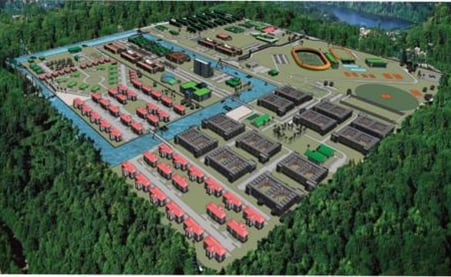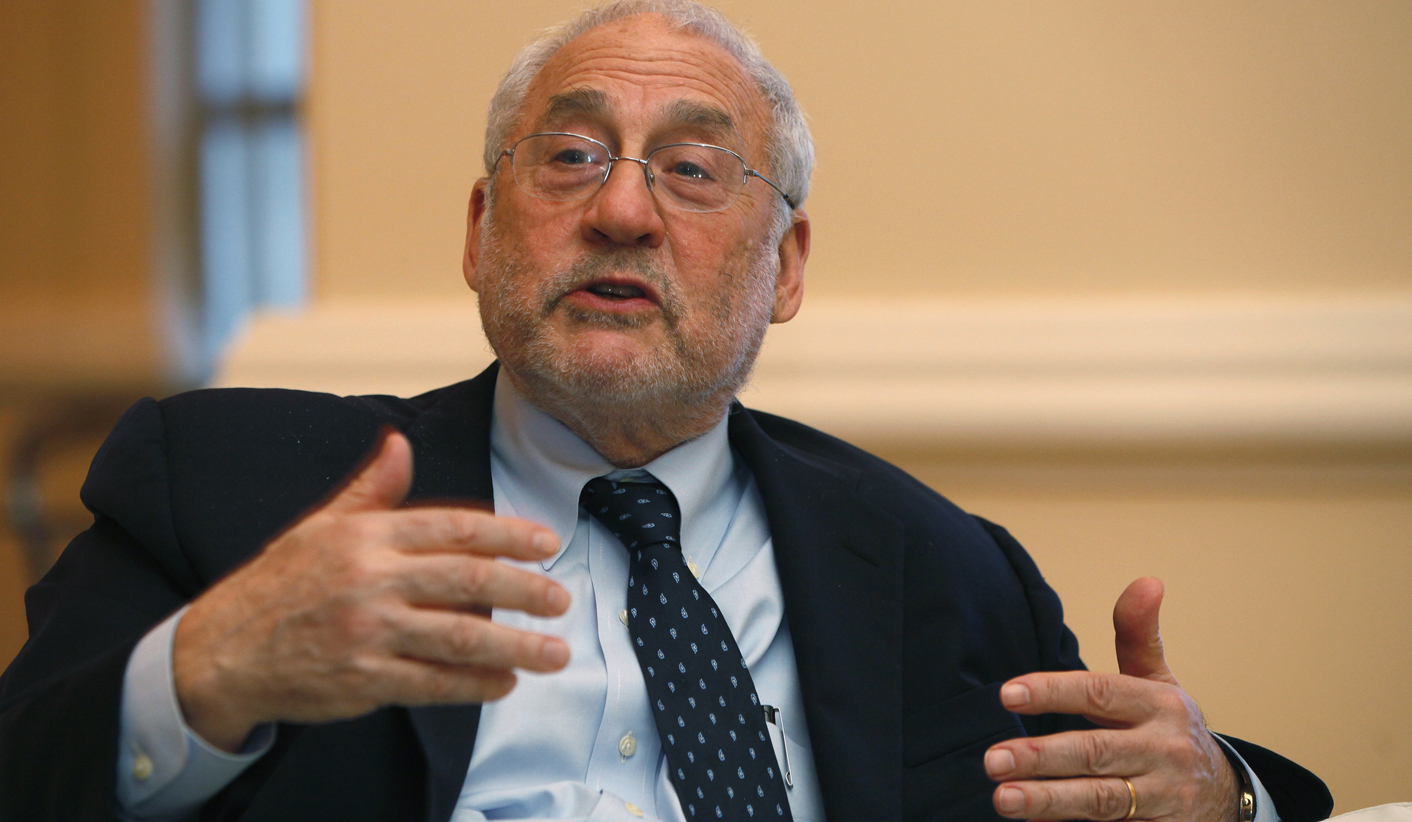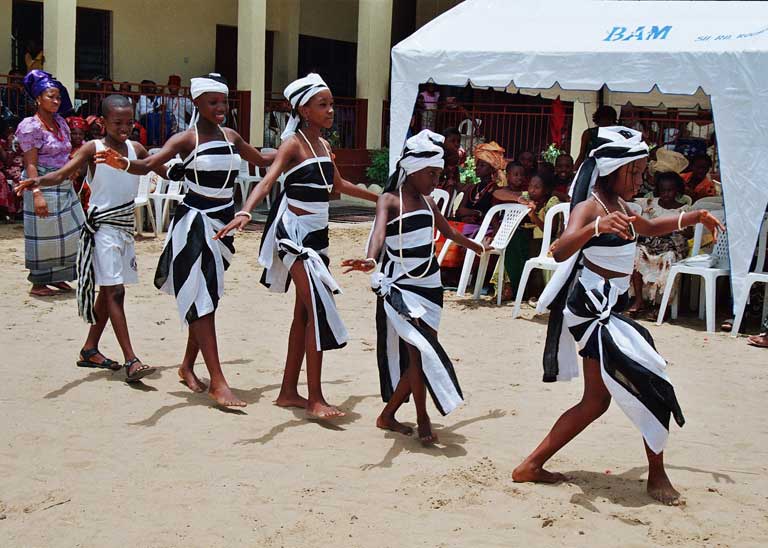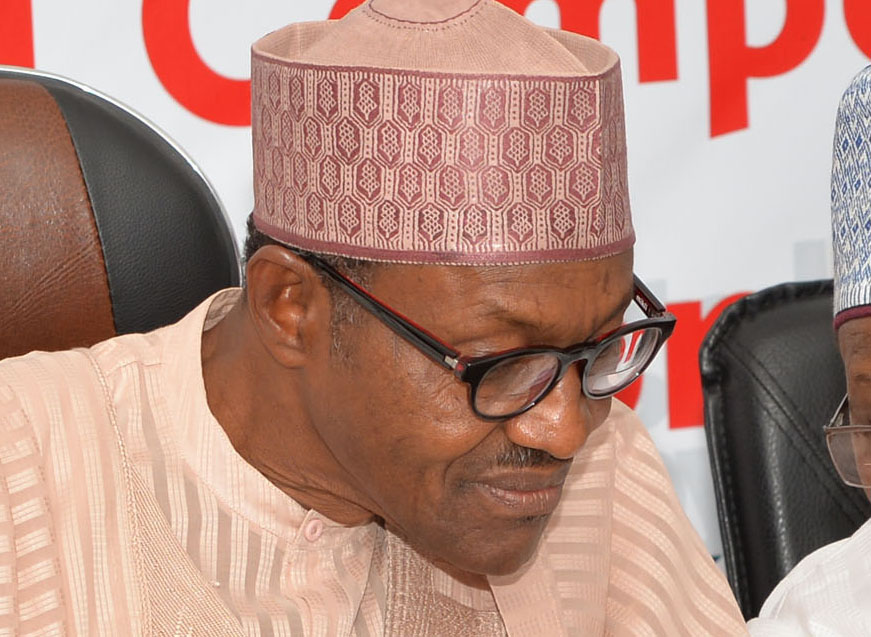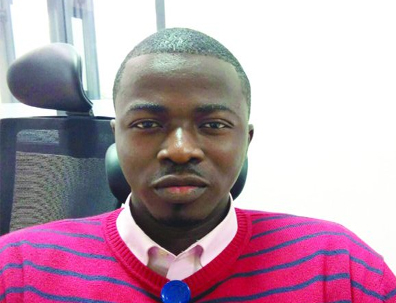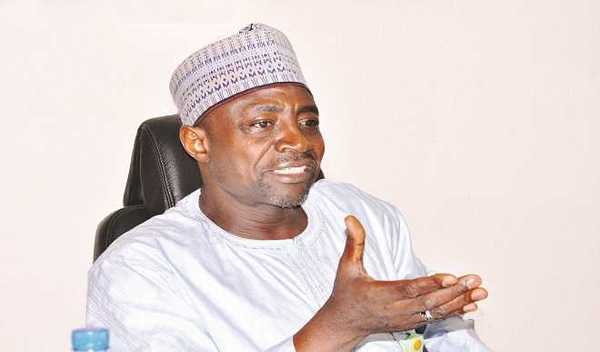By Franklyn A. Nlerum
Government is not synonymous with an administration or regime although in popular parlance, there is that assumption. Whereas administrations, in a democracy, can change in consequence of an election, a government remains the vehicle for driving the purposes of a state (country). In this wise, government is a continuum. Consequently, change of administration should not without more result in change in policy direction or impede the execution of programmes.
The policies of the state (or government) in the sense contemplated by Chapter 2 of the Constitution of the Federal Republic of Nigeria, 1999, as amended, are distinct from the policies of an administration which may be informed by the manifesto of the political party controlling the administration. Well thought-out policies of government will aim at advancing the overarching goals of the stateregardless of the ideologies of the political party controlling an administration. In this respect, policies and programmes based on the developmental goals and objectives of the state must be distinguished from those informed by the transient interests of the officials of an administration.
The general view is that reversal or changes in policies of government create uncertainty in the system and should be discouraged. A critical question is – is it every policy enunciated by a preceding administration that a successor should follow through with. Must an administration follow a path chosen by its predecessor regardless of its relevance, utility and viability? Can a successor administration review the policies (programmes) to determine those that it should continue to implement? In this direction, recall that the Treasury Single Account was a policy decision of the immediate past administration of President Jonathan which the President Buhari administration identified as consistent with its drive for accountability and transparency in the management of public finance, and has pursued it with vigour. By the same logic, the current administration should be at liberty to evaluate other policies (programmes) of the past administration for their fit. This is a necessary backdrop to the issue of the Maritime University.
In 2014, the Nigerian Maritime Administration and Safety Agency (NIMASA) promoted the establishment of a Maritime University in Okerenkoko, Delta State. The Agency constituted a panel of experts (where less than half of the membership had relevant experience in maritime operations) to develop the academic brief and curriculum for the proposed University. The late Davies Ekwenna and Capt. Joe Ihediwa (experienced in maritime operations) and Prof. Christopher O. Ikporukpo (specialist in Transport/Industrial Geography) were in the team. The team led by Prof. G. G. Darah (a literary scholar) had at least three other literal scholars of the Niger Delta extraction.
Advertisement
Within the same 2014, the proposed Maritime University was approved by the Federal Executive Council and academic activities were planned to commence in September 2014. To this end, “for a successful commencement of the university, a steering committee (was) constituted comprising officials of the Ministry (Transport), NIMASA and the National Universities Commission.” According to Andrew Airahuobor, Nigeria Maritime University and Niger Delta Development, Daily Independent, May 16, 2014, President Jonathan flagged off the Temporary Site for the University where “classrooms, hostels and some other administrative blocks have already been constructed by the Agency” (NIMASA).
The commencement of the University was shifted to September 2015. The May 2014, report by Mr. Airahuobor in the Daily Independent concluded thus, “However, it is believed that the completion of these projects (the University and other NIMASA Project in the area) are hinged on President Jonathan’s success in 2015 elections as a new administration may not be favourably disposed to continuing, because of certain political considerations.”
In addition to the fear expressed way back in May 2014, by September 2015, stakeholders expressed concerns about the commencement of the University. These provided the backdrop to2016. On January 19, 2016, the Minister of Transport, Mr. Chibuike Rotimi Amaechi was reported to have said before the Senate Committee on Marine Transport, “We are not going ahead with the university project proposed by NIMASA because we have an institution in Oron…which we could upgrade to a University status and NIMASA is proposing to build a new one.” Prior to this statement, according to Emma Amaize, in “Amaechi and Maritime University: The Storm in Ijawland” (Vanguard, January 31, 2016) Amaechi had raised the issue of prioritization with respect to the Maritime University “…we need to build the Oron school to the standard that we need in order to be able to compete with global institutions… we are not saying that the school [Maritime University at Okerenkoko] will not go ahead but we want to place priority on Oron first to see what is doable, there is no money so we must be careful before taking on new projects.”
Advertisement
Since January 19, 2016, the focus of commentaries has changed from germane issues relating to the University to unbridled attack on the Minister of Transport, Mr. Chibuike Rotimi Amaechi. The primary objective of this article is to situate the matter in context by highlighting some pertinent questions that arise from the statementof the Minister before the Senate Committee. Is there a maritime institution in Oron? In proposing the Maritime University, did NIMASA take into account the existence of the institution in Oron? What is the condition of the institution in Oron? Is the setting up of another institution a rational action in the prevalent economic circumstances of the country? Is there anything in the circumstances of the Maritime University that should warrant a rethink about the project?
It is imperative that I disclose my affiliation and association, and possible biases with respect to the principal character in focus as it relates to the Nigerian Maritime University at Okerenkoko, Delta State. First, I do not belong to, and do not in the foreseeable future intend to join, any political party. However, I am a kinsman of Mr. Chibuike Rotimi Amaechi. I worked with him from 2009 – 2015. From extensive close interactions, I found Chibuike Rotimi Amaechi to be a man of conviction, bold, visionary, compassionate, just and fair – very uncommon traits for a member of the political elites in Nigeria. More importantly, Chibuike Rotimi Amaechi does not mask his willingness to be persuaded by superior arguments. We had many intellectual battles over the six year period of working with him. You challenged his positions without repercussions – directly or indirectly. Chibuike Rotimi Amaechi is a principled leader who readily takes hard decisions where required. Against this backdrop, I make the initial but fundamental point that it is not correct as has been alleged by many commentators and stakeholders that Chibuike Rotimi Amaechi wants the new Maritime University, Okerenkoko closed to “punish” the Niger Delta Region.
Secondly, I have been involved and have observed at close quarters that public sector governance in Nigeria suffers from lack of (at worst) and (at best) limited intellectual engagement and rigour. In consequence, public expenditure (or investment) rarely produced commensurate return. Critical questions that should predicate expenditure are rarely asked and if asked, are not honestly answered. This deficiency in governance was eminently illustrated by the new Maritime University. For example, does Nigeria need the new Maritime University? Can Nigeria afford to establish a properly resourced institution at this time? Is there no existing educational institution in Nigeria that can fulfill the purpose of the university with a fraction of the funding deployed to open the new university?
Thirdly, prebendalism for the most part characterizes governanceand the extant political order in Nigeria. For this reason, commentators (essentially partisan and ethnic) choose to ignoremore significant questions relating to the establishment of the new Maritime University and resort to imaginary mental constructsaimed at blackmail – pure and simple. Is it possible that the protestation that has attended the subject matter of the Maritime University is informed by considerations that may not be altogether noble? Are there perhaps personal and pecuniary interests that may be exposed or injured by the proposed suspension of action on the Maritime University?
Advertisement
A relevant tripod for healthy public expenditure management: rationality, prudence and efficacy (effectiveness) does not seem to have had any influence on the decision to establish the Maritime University. Was the establishment of the Maritime University a rational decision of the administration of President Jonathan? In the totality of the circumstances, was the establishment of the University a prudent application of scarce resources? Will the establishment of the University be effective in addressing the identified needs? Set these questions against the backdrop that there is the Maritime Academy of Nigeria at Oron, Akwa Ibom State,which has been in existence for over thirty years. Dr. Alex Okwuashi, (Rector, Certified Institute of Shipping) in an Interview in The Journal of Freight & Energy, September 8, 2014, raised a poser “…before the establishment of the Nigerian Maritime University, there was clamour to upgrade Oron to University. Why did they drop the proposal and now establish a brand new institution?
The Maritime Academy of Nigeria – originally called Nautical College of Nigeria was established in 1979 to train shipboard officers, ratings and shore-based management. The first batch of graduates from the College emerged in 1983. The mandate of the College was expanded in 1988, with the enactment of Decree No. 16 of 1988, to cover the training of all levels and categories of personnel for all the facets of the Nigerian Maritime Industry. This mandate gives a lie to the claim by the Ijaw Youth Council that the Academy is to provide medium (sic) level training. Twenty years (2008) following the expansion of the mandate, the Academy had produced 4,300 Officers of Nigerian Merchant Navy and more than 60,000 other personnel in maritime operations. However, as at 2008, the Academy did not have oceangoing vessels that would help the graduates earn hours at sea, a requirement for their professional qualification.
The Academy is located and operates on a large expanse of land in Oron, Akwa Ibom State in the Niger Delta Region, on a waterfrontclose to the Cross River near the port of Calabar and about 200 Kilometers from Port Harcourt. For our present purposes, it is useful to provide some relevant timelines in the life of the Academy preceding the establishment of the new Maritime University. In2003, the then President Chief Olusegun Obasanjo approved the construction of a jetty for the Academy (this is more than ten years after the expansion of the mandate of the Academy). In 2008, the Academy signed an agreement to collaborate on training programmes with the Norwegian Ship Owners Association. In October 2008, the then Minister of State for Transport, Prince John Emeka, announced the upgrade of the Academy to a degree awarding institution and highlighted the need for increased funding of the Academy. In 2010, the Nigeria Liquefied Natural Gas (NLNG) Limited, which sources about 60% of its crew from the Academy, donated safety training equipment to the Academy worth Thirty Million Naira (N30, 000,000.00). In the same 2010, NIMASA noted that the Nigerian Shipping Industry needed 50,000 seafarers to realize its full potentials. Consequently, it planned to open a new Academy at Badagry because the existing Academy at Oron did not have the carrying capacity to accept all eligible applicants. In addition to capacity, other deficiencies of the Academy at Oron relate to poor quality, i.e., not meeting international standards – lack of teaching facilities, lack of qualified personnel to provide proper training and lack of seagoing vessels for training.
Rather than address the carrying capacity and deficiencies of the Academy, the option of commencing a new institution was accepted and pursued at a different location (initial plan was Badagry) with such dispatch including buying facilities for a temporary site in the sum of over Thirteen Billion Naira (N13, 000, 000, 000.00). The estimated cost of constructing the permanent site of the University is put at Thirty Billion Naira (N30, 000, 000, 000.00). The Nigerian Maritime University promoted by NIMASA was established in 2014. In May 2014, then President Goodluck Ebele Jonathan performed the ground breaking ceremony. In addition to acquiring a temporary site in the sum of over N13 Billion, NIMASA is reported to have provided a take-off grant of N2 Billion for the University.
Advertisement
Is it possible that the administration of President Buhari found compelling grounds for revisiting the commencement of the Maritime University? Is it also possible that parties (including those with pecuniary interests, recall the allegations of “hijacking contracts”) interested in the immediate commencement of the Maritime University had prior knowledge or suspected that the administration may want to revisit the project? On this point, it is important to highlight comments in the public space regarding the Maritime University. On September 7, 2015, Transport and Marine.Com reported that the Federal Government is set to scrap the Maritime University at Okerenkoko. TheCable on September 10, 2015 (Buhari frustrating establishment of maritime university – by Taiwo George) reported that the Ijaw Youth Council (IYC) has alleged that the President has decided to victimize the region for supporting former President Goodluck Jonathan in the last election. When Messrs. Ekanpou Enewaridideke and Paul Bebenimibofrom Warri, wrote Time to kill the Maritime Varsity? in the Vanguard on September 18, 2015, President Muhammadu Buhari had not nominated and appointed Chibuike Rotimi Amaechi as a Minister. If these fears and concerns had been expressed in September 2015 and Mr. Amaechi was appointed as Minister of Transport in November 2015, how logical is the allegation that it is Amaechi’s prejudice that is stopping the Maritime University?
From the Open Letter by Elder Edwin K. Clark to President Buhari, referring to the statement of Mr. Amaechi before the Senate Committee on Marine Transport, the Elder wrote “If this statement is true, it is very … vindictive on the people by Mr. Rotimi Amaechi. It is all aimed at executing his plans of personal vendetta against the people of the Niger Delta.” One may ask what vendetta? For what reason and to what purpose is the vendetta?
Advertisement
Interestingly, the allegations and sentiments expressed against Chibuike Rotimi Amaechi were all contained or alluded to in the articles of September 2015. The Open Letter of the Elder Edwin K. Clark to the President only amplified them. For example referring to the non-take off of the University in September 2015 as rescheduled, the duo of Enewaridideke and Bebenimibo (reputedly a Media Consultant to Government Ekpemupolo)stated “…could it be a strategy to humiliate and exasperate Niger Deltans?” … “It is high time we stopped the stinging of Niger Deltans by vindictive bees of exploitation, educational backwardness and joblessness.”
From the point of time (September 2015 and January 2016), it is evident that these comments belie and contradict the allegations against Mr. Chibuike Rotimi Amaechi with respect to the Maritime University. However, they serve the purposes of those maligning him including the Elder – Chief Clark, to rehash the sentiments and attach them to Chibuike Rotimi Amaechi.
Advertisement
On the vexed question of the location of the Maritime University in the Niger Delta region, it is important to note that the Maritime Academy of Nigeria in Oron (Akwa Ibom State) is in the same Region. Or is Akwa Ibom State not part of the Niger Delta? Will an institution located in Akwa Ibom State that is properly resourced not serve the interest of Niger Delta? Must the institution be located in Okerenkoko, Delta State, before it will pass for or meet the status of Niger Deltan? Are some areas more Niger Deltan than others?
In an Open Letter by Ijaw Youth Council (IYC) on January 25, 2016 Vanguard – Udengs Eradiri and Eric Omare referring to the proposed cancellation of the University stated “…the university would greatly contribute to the development of high class manpower in the maritime sector… [the university] “will also go a long way to address the aged long marginalization suffered by the people of the Niger Delta Region.” To these assertions, one may ask if the Academy in Oron is upgraded as planned since 2008, (the point that Amaechi made) will these ends not be met. Must the institution be in a particular location before the marginalization suffered by the people of the Niger Delta can be addressed? According to the IYC, there is “… the temporary site at Kurutie Community with completed structures…” From whom and at what cost was the temporary site acquired? How reasonable was the cost of acquisition of the temporary site? Was this a prudent application of resources? Would the application of a fraction of that amount to upgrade the Maritime Academy at Oron not have given Nigeria a world class maritime institution with improved carrying capacity? Following movement to the permanent site (which is reportedly under construction at the cost of N30 Billion), what will happen to the temporary site acquired at such a cost?
Advertisement
At this juncture, the pertinent observation of Dr. Okwuashi in the interview published in The Journal of Freight & Energy(September 8, 2014) rings true. In underscoring the waste associated with the new University, Dr. Okwuashi said “…instead of building and wasting these resources…You can go and establish Department of Maritime Studies. In that department, you fund it, it is no longer going to be as expensive as the one you are going to sink in a virgin land.”
ThisDay February 4, 2016, reported that Dr. Ifeanyi Okowa, Governor of Delta State said that the scrapping of the Maritime University, Okerenkoko was uncalled for. He added that Nigeria deserves more than one of such University and as such, there was no reason for an already established one with a functional governing council to be scrapped. Assuming that the Governor made this statement, one may pose a few questions to him. First, what is a functional governing council? Secondly, at what point is a University deemed to have been established? Thirdly, as Governor, will Dr. Okowa undertake every project that Delta State deserves even when the resources are not available? How many of the Universities owned by government – Federal or State are properly funded and equipped to operate as a University in the true sense of the concept? Should we continue with tokenism deluding ourselves rather than confronting the brutal facts and honestly seeking effective solutions to our problems?
Almost all of the commentaries on the purported scrapping of the Maritime University appear to ignore the allegations of corruption surrounding the acquisition of the temporary site for the Maritime University and the contracts regarding the permanent site. From the Open Letter by Elder Edwin K. Clark, the temporary site was owned by Mieka Dive Training Institute Limited/Gte and was acquired at the sum of N13.072 Billion with the approval of the Federal Executive Council presided over by then President Goodluck EbeleJonathan. Government Ekpemupolo (Tompolo) in his Open Letter absolving himself of any wrong doing, stated: “…It is not the alleged multi-billion naira property transaction. After all, it went through due process and was approved by the Federal Executive Council (FEC)…if there are any questions to answer, it is the people at the FEC, Bureau of Public Procurement (BPP), Federal Ministry of Lands and Survey, Federal Ministry of Transport, NIMASA, etc, who approved the transaction that should be answering such questions.
Dr. Alfred Mulade, one of the experts who prepared the brief and curriculum of the Maritime University, in his Maritime University: Greater than Amaechi’s Prejudice (The Guardian, February 7, 2016), apparently oblivious of the decision to upgrade the Maritime Academy, Oron to a degree awarding institution in 2008, six years before NIMASA empaneled the Prof. G.G.Darah Committee, stated “… Nigeria has only the Nigeria Maritime Academy at Oron, Akwa Ibom State, which is not even a degree awarding institution.”
If national development was the driving force, is establishing a new University the most prudent and rational action? Will a temporary site be acquired at the sum of over N13 Billion while the permanent site is estimated to cost N30 Billion? If the interest of the Niger Delta was the focus, should the upgrade of the Academy at Oron not have been pursued by NIMASA? It is very doubtful that the current administration would have taken the same action (suspending the commencement of the university) if the investment (substantial capital outlay) was to upgrade the existing institution at Oron. However, it is apparent that there is Niger Delta and there is Niger Delta. While Okerenkoko, Delta State is Niger Delta, Oron, Akwa Ibom is doubtful.
In accusing Chibuike Rotimi Amaechi of prejudice, Dr. Alfred Mulade, a Warri based Petroleum Economist and Rural Development Policy Analyst refrained from disclosing in sufficient details his affiliations and biases, particularly that he was a Special Assistant to the immediate past Executive Director (Projects) of the Niger Delta Development Commission and was involved in developing the academic brief of the University. It is possible that the connections were the lens with which Dr. Mulade approached the statement by Chibuike Rotimi Amaechi.
From a benefit/cost analysis, the establishment of the Maritime University would seem to be of doubtful justification. When you juxtapose the reasons adduced for establishing the Maritime University at Okerenkoko by the stakeholders (the benefits) with the initial cost relative to upgrading the Maritime Academy at Oron in the light of the take-off grants for New Federal Universities and possibly, the initial cost of prominent private Universities in the country, the entire project begins to produce unsavory smell. The urgency and rush in making the University operational seem to have been aimed at foisting it as a fait accompli on a successor administration.
From the Open Letter dated January 22, 2015, by the leadership of the Ijaw Youth Council, the expected benefits of the Maritime University include contributing to the development of high class manpower in the maritime sector; addressing the aged long marginalization suffered by the people of the Niger Delta Regionand positively impact on the life of the people of the area concerned, especially the youth. The initial cost for these expected benefits is over Fifteen Billion Naira (N15, 000,000,000.00) – the cost of acquisition of the temporary site at Kurutie Community with completed structures and the take-off grant to the Maritime University in the sum of Two Billion Naira (N2, 000, 000, 000.00). I am persuaded that the application of a third of this amount in the upgrade of the Maritime Academy at Oron can achieve the same benefits within the same Region. Save for an implicit position by the Ijaw (including the domination of other ethnic nationalities in the region) that Niger Delta is synonymous with Ijawland for which reason the development of the Maritime Academy in Oron into a world class training centre does not meet the demands of theirRegion. It is along the same line that Eradiri and Omare of the IYC were bold to state in the Open Letter to President Buhari that “The decision (to cancel the Maritime University) would only provide justification for hostility in the Niger Delta Region towards your administration.” In any civilized society, no citizen can or should be allowed to threaten the state or its administration. Violence or threat of violence by any citizen must attract appropriate and commensurate response from the organs of the state otherwise the state will lose its claim to civilization.
Another striking point on the Maritime University and its funding is that a comparative analysis of funding for new Universities in Nigeria shows that the Maritime University was more than well favoured. The question begging for an answer is why. In 2011, the President Jonathan Administration approved the establishment of Nine Federal Universities in different parts of the country including Otuoke, Bayelsa State. The take-off grant for each of these Universities was far less than the cost of acquiring the temporary site for the Maritime University. It is also doubtful that the Eminent Lawyer – Chief Afe Babalola, SAN, committed the sum of N13Billion as initial cost for the very well celebrated Afe Babalola University; neither does it seem that the take-off cost for any of Covenant University; Landmark University; Redeemers University; Babcock University or Ajayi Crowther University is anywhere near the princely sum spent on a temporary site for the Maritime University. Nobody has asked or is asking why? The conversation has abandoned pertinent and rational issues bordering on prebendal politics and its insalubrious effects, and has been steered towards peripheral and emotive issues around the person of Chibuike Rotimi Amaechi.
Against the foregoing, it is evident that rationality, prudence and effectiveness will support the upgrade of the Academy at Oron, the increase in its carrying capacity – student intake and resourcing to world class standard. With this, every benefit that the Maritime University can offer would be realized. Revisiting the immediate establishment of the University is not only cogent, it is also acompelling way of checking governance without rationality and entrenching the efficacy model in our national life.
It is difficult not to conclude that the circumstances and information relating to the establishment of the new Maritime University at Okerenkoko, Delta State belie rationality and supports prebendalism. The setting up of the University provided opportunities for widespread and significant leakages, which the President Buhari administration committed not to allow.
In the final analysis, it is not about Chibuike Rotimi Amaechi, his prejudices, his personal vendetta or disservice to the administration.Let us focus on the message and not the messenger. It is about government getting the priorities right, being prudent, taking rational decisions that advance national interest rather than dispensing prebends. It is about taking the hard and painful decisions for the greater good of Nigerians. The second stanza of our National Anthem opens by appealing to our creator – God to direct our noble cause, to guide our leaders to do right and to help our youths to know the truth. Let us always reflect on, and at all times evaluate our actions against, these words. God bless Nigeria.
Nlerum wrote from Port Harcourt
Views expressed by contributors are strictly personal and not of TheCable.
Add a comment
